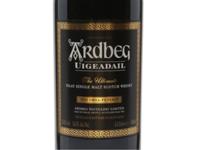No Age Statement (NAS) whisky
Contents

A relatively new trend has been causing controversy within the traditionally age focussed whiskey world for the last few years. No Age Statements, whiskies with no age information on the label. Most NAS whiskeys are single malts, these came about as a consequence of the law requiring that only the age of the youngest whiskey in the bottle may be stated.
What is NAS Whisky?
NAS stands for No Age Statement and means that no information will be given about the age of the liquid inside the bottle.
Age Statements and the Law
If a whisky is to carry an age statement, that being 10, 15, 20 etc. years old then by law it must only list the age of the youngest whisky in the mix. A whisky comprised of 99% 25 year old whisky, and 1% 3 year old whisky must be marketed as a 3 year old. Faced with growing demand and shortages of aged stock distilleries have started to create whiskies containing younger spirit.
The problem of Marketing
Ultimately the issue is one of marketing. Namely that having spent decades convincing drinkers to opt for older bottlings over younger ones consumers favour older expressions. Now having changed their tune and understandably concerned that a young age would disadvantage sales many distillers have opted to forego the age indication in favour of a memorable name such as Talisker Storm, Ardbeg Uigidal or Laphroaig PX Cask. Coined “flavour led expressions” by the marketing departments, distilleries argue that the benefits of NAS outweigh the risks:
- More leeway for the master blender
- More variety and more choice
- Younger whiskies are given a chance
- Prices are cheaper than longer matured equivelents
A Natural Controversy
Alongside chill filtration and spirit caramel, NAS whiskies are perhaps the most divicve topics of conversation within whisky chances are they’re not going anywhere however.
The undeniable truth is that No Age Statements by their nature will contain some quantity of whisky that has spent less time in cask. The lack of transparency make it possible for ages to slide downwards and the quality and complexity of the whiskies may suffer as result. So far however in blind tastings, even professionals do not always succeed in identifing how long a single malt scotch has been allowed to mature.
Incredible NAS Whiskies
Ultimately the measure of a whiskies quality is in the tasting not the packaging or labelling. Here at whiskipedia we’re big fans of transparency and would prefer to see the age, cask and ratio of all liquid inside a bottle, regardless many NAS whiskies are often well worth trying.
Glenmorangie and Ardbeg have been releasing exceptional NAS whiskies for years, the Uigidal for example is considered by many, myself included, to be a superior product to the standard 10. A fact borne out by their reviews around the web. Kilchoman distillery on Islay, along with a number of recent distilleries have built their brands and reputation off the back of ageless whiskies. These whiskies were of high enough quality that they could speak for themselves.
Age Statements Are Not The Answer
Age statement legislation is actually a huge obstacle to transparency and a terrible measure of quality. The legislation actually make it harder for distillers and blenders to be open with consumers as they actually require that only the age of the youngest whisky be stated on the label. The blender Compass Box was actually stung several years ago for including the age of the respective components on one of their blends.
Surely no one considers a nearly exhausted, or even rejuvenated, cask to impart the same flavour profile as a freshly sourced sherry cask. Thus an age statement alone actually causes more problems than it solves, the distilleries are not wrong in this regard. Though they were themselves the original culprites in creating this illusion.
The NAS Verdict
There are fantastic NAS Whiskies available, and to deprive yourself the pleasure of a fantastic single malt, grain or blend over packaging is absurd. Those distilleries and brands foolish enough to put profit ahead of quality will find their futures bleak and and their brand in peril but the real victims of NAS whisky are the ordinary consumer.. The ordinary consumer is being sold a younger whisky, often at an equal or higher price tag.
Chances are anyone reading this article doesn’t fall into that camp. Those drinkers who take an interest in whisky care if it contains spirit caramel, has been chill-filtered or have an opinion about casks are rarely if ever going to be stung by a NAS. Simply put they know better, are informed enough to know what they are buying and will opt to try a dram over grabbing a bottle in the supermarket. The issue faced by the enthusiast is that favoured expressions are going to leave the market. That sucks, but with over 115 malt distilleries in Scotland, to say nothing of the global whisky market we’ll be voting with our wallets.

